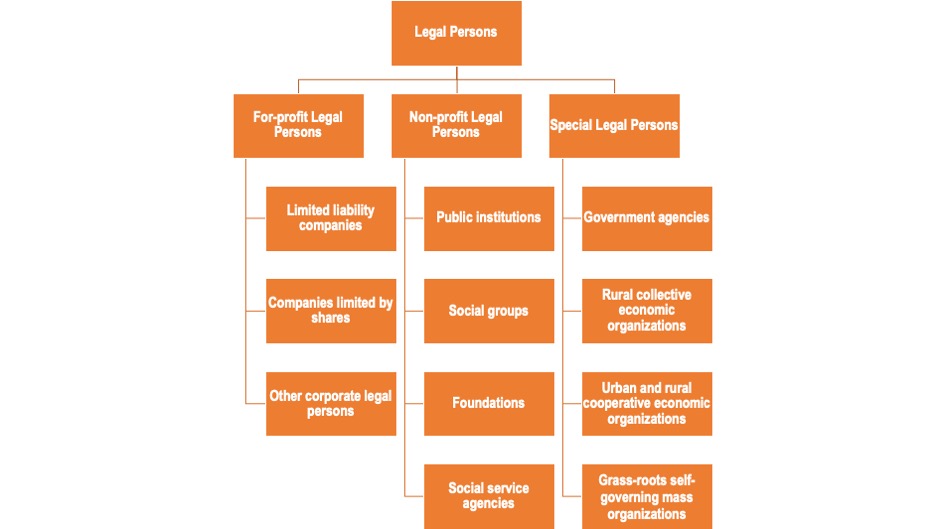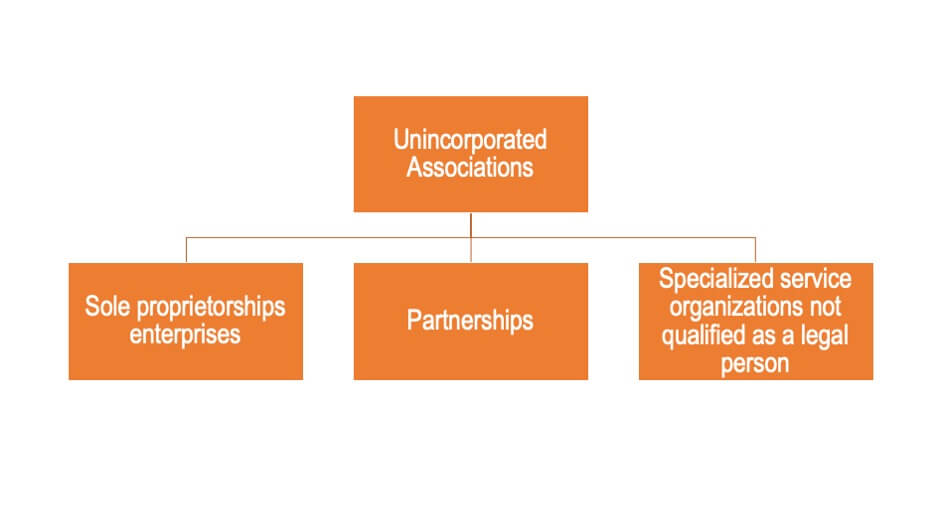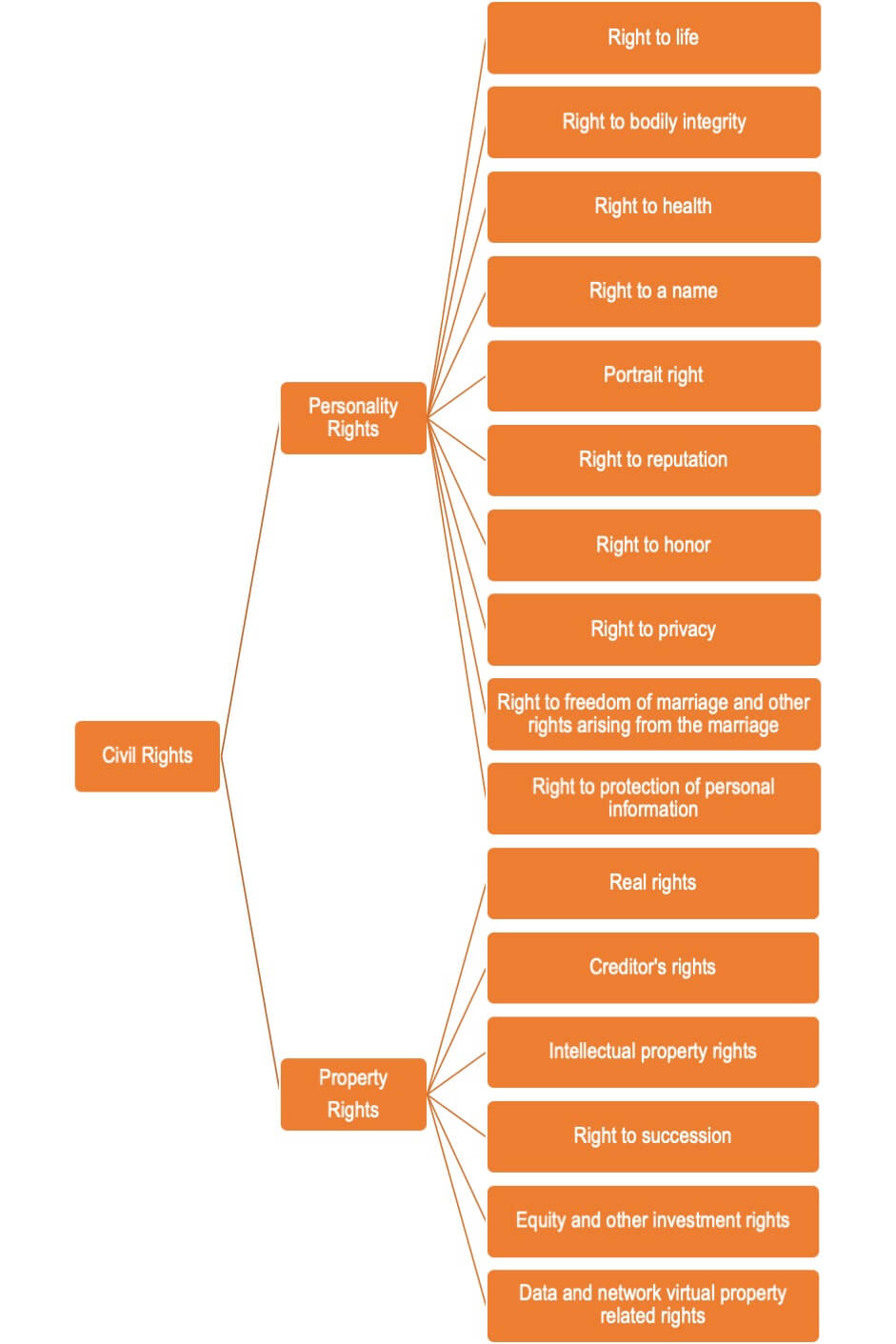
China promulgated its first-ever Civil Code in May 2020, which includes seven parts, i.e., General Principles, Real Rights, Contracts, Personality Rights, Marriage and Family, Succession, Liability for Tort, and Supplementary Provisions. The General Principles is its first part.
For related posts on the PRC Civil Code, please click here.
For China Civil Code (Free English Version), please click each part as follow:
Book I General Principles (English, Chinese)
Book II Real Rights (English, Chinese)
Book III Contract (English, Chinese)
Book IV Personality Rights (English, Chinese)
Book V Marriage and Family (English, Chinese)
Book VI Succession (English, Chinese)
Book VII Liability for Tort (English, Chinese)
Before that, China had promulgated the “General Principles of Civil Law” (民法总则) and the “General Provisions of Civil Law” (民法通则) respectively. After the promulgation of the Civil Code, the two laws were abolished accordingly.
“Part I General Principles” is divided into ten chapters: Basic Provisions, Natural Persons, Legal Persons, Unincorporated Associations, Civil Rights, Civil Juristic Acts, Agency, Civil Liability, Limitation of Action, and Calculation of Periods.
We have selected some noteworthy points as follows:
1. Capacity for civil rights
A natural person shall have the capacity for civil rights as from birth until death, may enjoy civil rights and shall assume civil obligations in accordance with the law.
Where the protection of interests of the fetus, such as inheritance and acceptance of gifts, is involved, the fetus shall be deemed to have the capacity for civil rights. However, if the fetus is dead at birth, his/her capacity for civil rights does not exist from the beginning.
2. Adults and minors
A natural person over the age of 18 is an adult. A natural person under the age of 18 is a minor.
Parents shall be obligated to raise, educate, and protect their minor children. Adult children shall be obligated to support, assist, and protect their parents.
3. Capacity for civil conduct
An adult has the full capacity for civil conduct, and may perform civil juristic acts independently.
A minor who has reached the age of eight (i.e. from eight to eighteen) is a person with limited capacity for civil conduct, and shall be represented by his/her agent ad litem or obtain consent or retroactive acknowledgment of his/her agent ad litem in the performance of civil juristic acts.
A minor under the age of eight is a person without capacity for civil conduct, and shall be represented by his/her agent ad litem in the performance of civil juristic acts.
4. Civil subjects
Civil subjects include natural persons, legal persons, and unincorporated associations. Legal persons and unincorporated associations can be further divided into the following types:


5. The types of rights of civil subjects are as follows

6. Civil juristic acts
A civil juristic act shall be the act of a civil subject to establish, change, or terminate a civil juristic relationship through the manifestation of intent.
A civil juristic act is valid if it meets the following conditions:
(1) The actor has the relevant capacity for civil conduct;
(2) The intention expressed is authentic;
(3) Such act does not violate the mandatory provisions of laws and administrative regulations or the public order and good morals
7. Limitation of action
In general, the limitation of action for civil subjects to apply to the court for the protection of civil rights is three years.
The limitation of action shall run from the date when the obligee knows or should have known that his/her rights have been infringed upon and who the obligor is.
Where the laws provide otherwise on the limitation of arbitration, such provisions shall prevail; if there are no such provisions on the limitation of arbitration, the provisions on the limitation of action shall prevail.
The English translation of the PRC Civil Code is currently available for pre-order on China Justice Observer. If you are interested in a pre-order, please contact Meng Yu via e-mail at meng.yu@chinajusticeobserver.com. The PRC Civil Code of 110,123 Chinese words in total are translated into English, and the English translation (estimated at 60,000 words) is priced at US$ 4400. We will provide the English translation and the English-Chinese version within 2 weeks.
Photo by Bryan G. (https://unsplash.com/@mirador9) on Unsplash
Contributors: China Laws Portal Team







